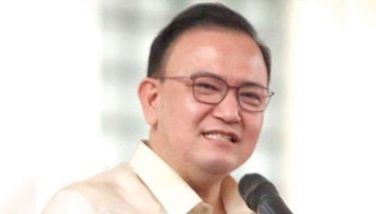PhilHealth issues warning to public over fake checks
October 29, 2006 | 12:00am
The Philippine Health Insurance Corporation has called on its members to be vigilant against the proliferation of fake checks being re-discounted in commercial establishments nationwide.
Jay Villegas, PhilHealth Fact-Finding and Administrative Investigation Department manager, said that counterfeiters usually exchange their fake PhilHealth checks for grocery items through re-discounting.
Villegas said the fake checks are commonly negotiated in grocery stores, drugstores, and other small establishments before holidays or during weekends when check clearing would only be possible on the next working day.
Villegas added that since the modus operandi was discovered in 2001, some 176 cases involving spurious checks, with an estimated total worth of P1.5 million, have already been reported.
The number of cases has significantly gone down from 2001 up to the third quarter of 2003 through the collaborative efforts of PhilHealth, National Bureau of Investigation and Philippine National Police.
However, in late 2003, another group of counterfeiters apparently revived the modus operandi, giving rise to 19 the reported cases during the period, Villegas said.
"We continue to strengthen our monitoring and investigation efforts to ensure that these numbers do not go up again," he said.
He also revealed that another strategy being resorted to by these unscrupulous persons who bear fictitious names is to deposit the fake checks to their accounts.
But the stringent clearing mechanism of PhilHealth-accredited collecting banks like the Land Bank of the Philippines, where PhilHealth checks can be en-cashed, effectively prevents them from withdrawing the amounts stipulated in the fake checks.
So far, no money has been lost as far as PhilHealth and the banks are concerned since the fake checks did not translate into cash. Still, Villegas emphasized, banks must exercise extreme caution when dealing with persons trying to pass off PhilHealth claim checks during transactions.
"Certainly, we do not want more fake checks to be flooding the local market, that is why we have installed the necessary measures to prevent these incidents from happening," Villegas said.
He advised the public to immediately report to their office any incident involving fake PhilHealth claim checks. - Jasmin R. Uy
Jay Villegas, PhilHealth Fact-Finding and Administrative Investigation Department manager, said that counterfeiters usually exchange their fake PhilHealth checks for grocery items through re-discounting.
Villegas said the fake checks are commonly negotiated in grocery stores, drugstores, and other small establishments before holidays or during weekends when check clearing would only be possible on the next working day.
Villegas added that since the modus operandi was discovered in 2001, some 176 cases involving spurious checks, with an estimated total worth of P1.5 million, have already been reported.
The number of cases has significantly gone down from 2001 up to the third quarter of 2003 through the collaborative efforts of PhilHealth, National Bureau of Investigation and Philippine National Police.
However, in late 2003, another group of counterfeiters apparently revived the modus operandi, giving rise to 19 the reported cases during the period, Villegas said.
"We continue to strengthen our monitoring and investigation efforts to ensure that these numbers do not go up again," he said.
He also revealed that another strategy being resorted to by these unscrupulous persons who bear fictitious names is to deposit the fake checks to their accounts.
But the stringent clearing mechanism of PhilHealth-accredited collecting banks like the Land Bank of the Philippines, where PhilHealth checks can be en-cashed, effectively prevents them from withdrawing the amounts stipulated in the fake checks.
So far, no money has been lost as far as PhilHealth and the banks are concerned since the fake checks did not translate into cash. Still, Villegas emphasized, banks must exercise extreme caution when dealing with persons trying to pass off PhilHealth claim checks during transactions.
"Certainly, we do not want more fake checks to be flooding the local market, that is why we have installed the necessary measures to prevent these incidents from happening," Villegas said.
He advised the public to immediately report to their office any incident involving fake PhilHealth claim checks. - Jasmin R. Uy
BrandSpace Articles
<
>
- Latest
- Trending
Trending
Latest
Trending
Latest
Recommended



















